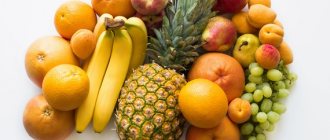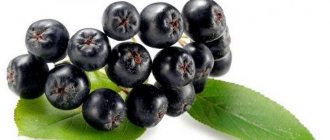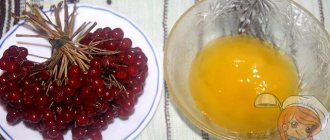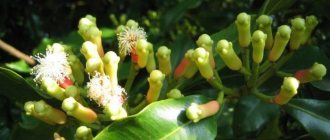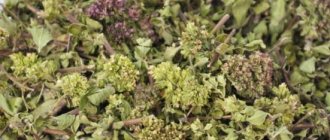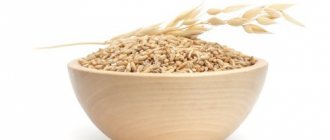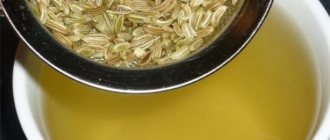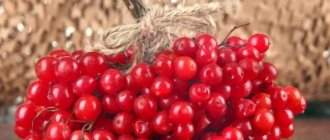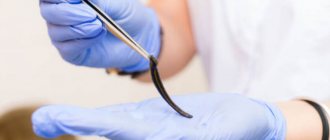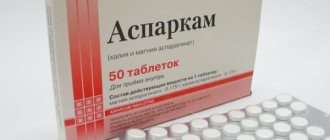It is useful for patients who suffer from high blood pressure to know which dried fruits are beneficial for their illness. It has been proven that vitamins B1, B6, E, potassium, magnesium, and folic acid reduce blood pressure. Therefore, consuming products with such a composition is beneficial for hypertensive patients. Dried fruits can gradually improve the cardiovascular system, which will lead to minimal use of medications.
Medicinal properties of dried apricots
This product is rich in complex and simple carbohydrates, including mono and disaccharides. Dried apricots contain a record amount of potassium, which nourishes the heart and muscles, so it is recommended for the prevention and treatment of cardiac diseases. Another group of beneficial substances in dried apricots are phytosterols. These are special fatty acids that have the ability to prevent the malignant degeneration of healthy cells and the formation of tumors. In addition, phytosterols regulate cholesterol levels in the blood and prevent its deposition in blood vessels. Just 150 g of dried apricots per day provides the body with the required amount of potassium and fatty acids, which protect it from the most dangerous pathologies.
The pulp and skin of the fruit are saturated with arginine, tryptophan and other amino acids that are involved in metabolism and the activity of the nervous system. Pectins and insoluble dietary fiber ensure normal intestinal function, regulate intestinal peristalsis, neutralize toxic substances, and prevent the development of constipation.
Dried apricots are rare sources of almost all members of the B vitamin group. It contains thiamine, riboflavin, nicotinic acid, choline, pyridoxine, biotin, and folate. Eating it helps restore the integrity of mucous membranes and skin tissues, support the formation of nerve cells, and mental performance. Dried apricots have the ability to relieve nervous tension, improve sleep and mood, and reduce the risk of depression and acute reactions to stress. When consumed regularly, it helps accelerate hair growth and maintains eye health.
The fruit contains many antioxidants: including ascorbic acid, carotene (provitamin A), lycopene, yellow pigment lutein, zeaxanthin. This complex provides prevention of age-related retinal dystrophy, protects the body from oxidation products, and prolongs youth. Dried apricots also contain a lot of iron, copper, calcium, zinc, boron, chromium and other minerals necessary for the full functioning of the body.
Dried apricots for blood pressure and hypertension: properties, recipes
Does dried apricot lower or increase blood pressure?
What beneficial properties of dried apricot should you pay attention to? Why is dried apricot so highly valued for hypertension? Dried fruits are an excellent option to saturate your body in winter with vitamins and beneficial microelements, which are well preserved in this product. Hypertensive patients will be interested to know the answer to the question of how dried apricots affect blood pressure?
We will analyze the benefits and harms of dried apricot below, find out its beneficial and medicinal properties, composition and contraindications for use. Do not forget that we are talking about a dietary product, so people who are overweight should pay attention to it.
Content:
Useful properties, contraindications Does dried apricots raise blood pressure? Recipes for hypertension Therapeutic properties of the product: video
The beneficial properties of dried apricot are explained by its rich composition, which is preserved for a long period of time. The product contains vitamins (A, B1, B2, C, PP, E), pectin, fiber, mono- and disaccharides, organic acids, minerals (potassium, magnesium, calcium, phosphorus, sodium). Such a rich composition helps to cope with many diseases when conventional medications no longer bring the expected effect.
The benefits of dried apricots are characterized by pectins, which remove radionuclides and heavy metal salts from the body, and cleanse them of toxins. It is recommended to eat dried apricots for anemia and ophthalmological problems. B vitamins can improve the functionality of the nervous system. Dried apricots have a low glycemic index, so they should be consumed if you have diabetes.
The product demonstrates a diuretic effect, reduces the negative effects of antibiotics, improves the condition of muscle tissue, skin and hair. Dried apricot also acts on the body as a rejuvenating agent. Since dried fruit has a laxative effect, it cleanses the intestines, normalizing its peristalsis. The product has antiseptic properties, cleanses wounds of pus, and is able to act on the principle of Vishnevsky ointment. The benefits and harms of dried apricots are individual. It is recommended to eat no more than 100 grams of dried fruits per day. Otherwise, you may experience digestive disorders. Therefore, it is enough to eat no more than 5 dried apricots per day. Damage to dried apricots can be observed if chemicals were used in its production, which will negatively affect the functioning of internal organs. It is contraindicated for low blood pressure (hypotension) and asthma.
Dried apricot is recommended for use in parallel drug treatment of arterial hypertension. The product increases the body's defenses, activates cholesterol metabolism, dilates blood vessels, reduces their spasm, prevents the formation of blood clots, and helps restore heart rhythm. Dried apricot also thins the blood and reduces its viscosity.
Thanks to the above beneficial and medicinal properties, dried apricots reduce blood pressure, so they are recommended to be included in the diet for hypertension. It normalizes metabolic processes and helps cope with edema due to diseases of the cardiovascular system. Since dried apricot is an effective natural remedy for high blood pressure, it is called a stabilizer for the proper functioning of blood vessels and the heart.
If you have high blood pressure, it is recommended to boil dried apricots. 100 ml of liquid should be mixed with 50 ml of mint leaves infusion and 20 ml of lemon juice. This remedy is taken 2 tbsp. twice a day. The course of treatment is 5 days.
For hypertension, dried apricots are mixed in equal proportions with dill seeds and prunes. 1 tbsp. the mixture needs to be poured with 250 ml of boiling water. Let it brew for half an hour, strain. Use 1 tbsp. before eating. Take no more than one spoon during the day. The course of treatment lasts until the tincture with dried apricots for high blood pressure runs out.
Take 100 grams of grated parsley roots, 2 tbsp. raisins and dried apricots. Pour the mixture into 400 ml of boiling water. The product is infused in a thermos for 4-5 hours. Take it 2 times a day, 100 ml. The course of treatment is a week.
For hypertension, dried fruit compote will be useful. For 100 grams of ingredients, use 1 liter of water. They are washed, filled with water and put on fire. After boiling, the pan needs to be moved to a warm place for 3-5 hours so that the compote can brew. This method of preparation will preserve most of the beneficial properties and vitamins.
Reviews from site readers and experienced hypertensive patients confirm the fact that dried apricots lower blood pressure, but do not raise it. Apricots also have similar properties. The hypotensive effect of the product lies in its rich composition. Dried apricots and blood pressure are interrelated concepts that should be paid attention to in case of hypertension. It is not surprising that traditional medicine strongly recommends diversifying your diet with both fresh and dried apricots.
For what diseases is dried apricot useful?
Eating dried fruits improves physical condition and slows down the progress of many pathologies:
- for arrhythmias, myocardial dystrophy, angina pectoris, and other cardiac processes;
- with high cholesterol levels, atherosclerotic changes in blood vessels;
- for neuropathies, neuralgia;
- with weakened vision, high loads on the eyes;
- when the body's immune defense decreases;
- with weakened tooth enamel, slow healing of cracks and bone fractures, hair loss;
- for disorders of blood viscosity;
- with reduced thyroid function;
- with a deficiency of B vitamins, ascorbic acid, low hemoglobin levels;
- with a tendency towards laws, intestinal atony.
Dried apricots normalize the metabolism of fats and carbohydrates and stimulate protein synthesis. They are useful for those with problematic, excessively dry, aging, irritation-prone skin. The active substances of the product stimulate collagen production, eliminate inflammation, and maintain skin elasticity.
Regular consumption of dried apricots supports the health of the spine and joints: it stimulates the secretion of lubrication, normalizes tissue metabolism, promotes compaction of cartilage and bone fragments, and helps fight inflammation. Dried apricots have a moderate diuretic effect, stimulate the liver and kidneys, relieve swelling, and reduce the risk of tumor development.
Eating dried fruits is beneficial for pregnant women, physically and nervously exhausted people: they contain a lot of nutrients that are easily digested. Calorie content of dried apricots: about 250 units per 100 g, it is a high-energy product.
How to eat dried apricots
It is recommended to buy fruits that have not been treated with sulfur dioxide before drying. The presence of chemicals in dried fruits is revealed by their bright, shiny surface. This treatment improves the presentation and extends the shelf life of dried apricots, but reduces its beneficial qualities. You should choose fruits with a matte, pale surface that have been naturally dried.
You can eat the fruits by first soaking them in hot water, grinding them in a blender, or in their natural form.
- Adults are recommended no more than 150 g of fruit per day;
- children: no more than 70 g.
It is undesirable to exceed the dose, as the product has a laxative effect and can cause diarrhea.
Dried apricots go well with porridge and cottage cheese. You can prepare a vitamin mixture from it: grinding it in equal parts along with raisins and lemon. It is useful to use this during seasonal infections, for acute respiratory viral infections and colds.
Vegetables and fruits
One of the numerous studies found that people who adhere to church fasts are significantly less likely to suffer from hypertension. And the point here is absolutely not a matter of God’s help: they simply eat less unhealthy fats and more vegetables and fruits. And, without a doubt, the “green diet” is a true storehouse of useful substances for hypertensive patients. Potassium and magnesium, folic acid and calcium, flavonoids and antioxidants – vegetables and fruits have everything you need to lower blood pressure.
- Bananas are a valuable source of potassium. This trace element is a sodium antagonist in regulating the functioning of the cardiovascular system and reduces blood pressure by removing excess fluid from the body. In addition, potassium is necessary to nourish the myocardium and protects against heart attacks and edema.
- Beets are a vegetable rich in potassium and vitamin C. If the first helps to dilate blood vessels and relieve spasms, the second is involved in the breakdown of cholesterol plaques and their removal from the body, improves coronary blood supply.
- Celery is a real complex of biologically active substances for normalizing blood pressure. It is rich in potassium and calcium, vitamin B6, which helps normalize the functioning of veins, as well as antioxidants that break down cholesterol.
- Potatoes are a product available to every pensioner. Of particular value are young potatoes, which contain a maximum of ascorbic acid and potassium.
- Citrus. It is enough to add a slice of lemon to your tea to feel invigorated and energized. Lemons, oranges and tangerines, rich in antioxidants, actively fight cholesterol in the body and serve as an excellent means of preventing heart attacks and strokes.
- Spinach. This green, which goes well with cereals, fish and lean meat, is rich in folic acid, which restores the elasticity of the walls of blood vessels and relieves spasms and headaches. In addition, spinach contains a lot of potassium and magnesium.
- Pomegranate is a recognized leader in the prevention of cardiovascular diseases. It is rich in antioxidants, potassium and magnesium. Moreover, its flavonoids are plant analogues of ACE inhibitors, a pharmacological group that is most often used to lower blood pressure. This includes drugs such as captopril and enalopril.
Vegetables and fruits are the most inexpensive and effective remedy against hypertension. Therefore, they should be, if not taken as the basis of the diet, then at least included in the daily diet. And you don’t have to think about how to lower blood pressure for older people without the risk of side effects.
